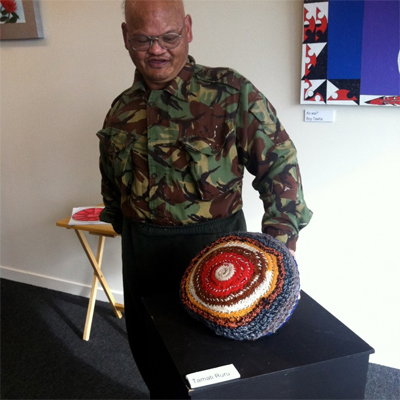Art as a Tool for Disseminating Research Outcomes: The Hauā Mana Māori Project and Participatory Action Research in New Zealand

New Zealand professor Katrina Bryant and colleagues describe their work with patient-centered research resulting in an art exhibit that conveys a cultural experience of disability.

